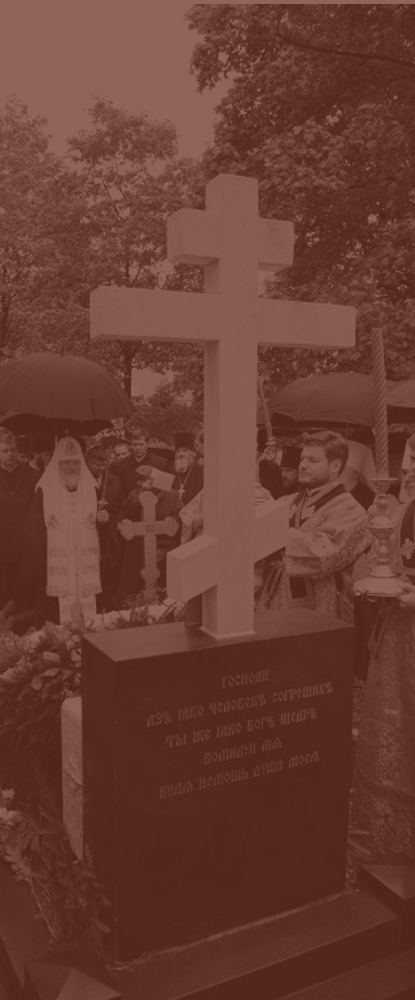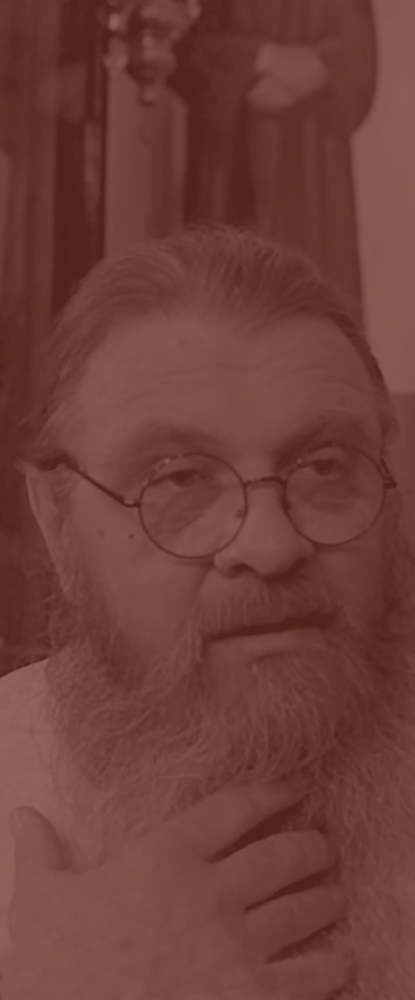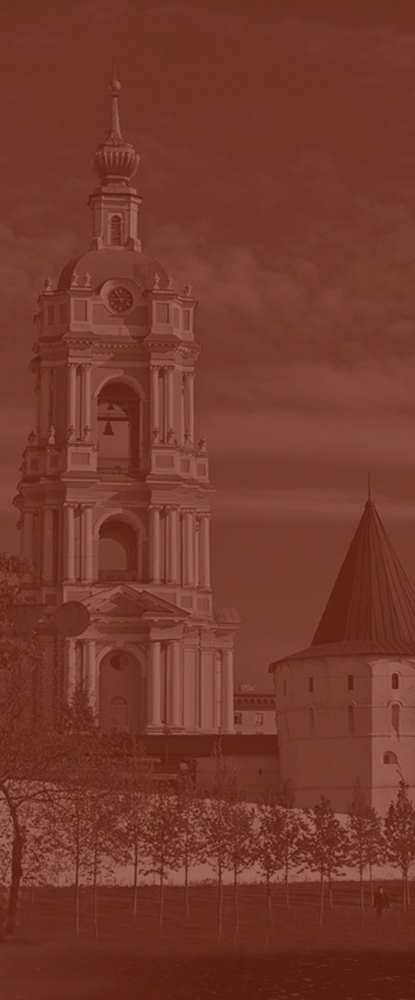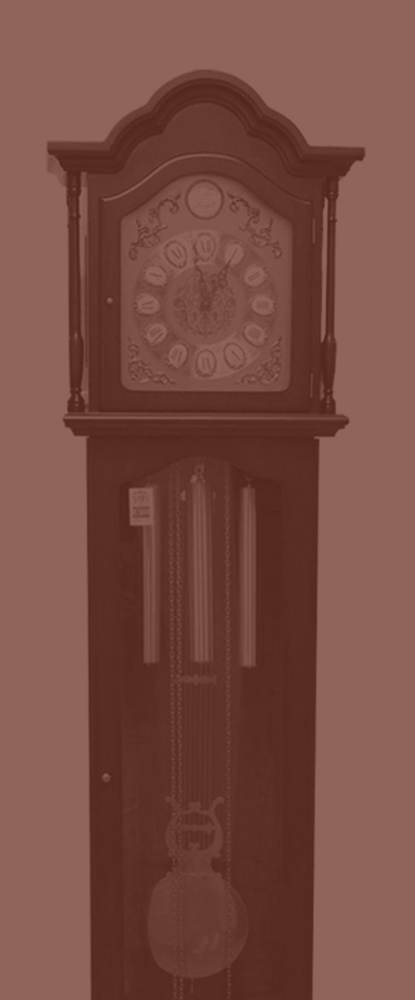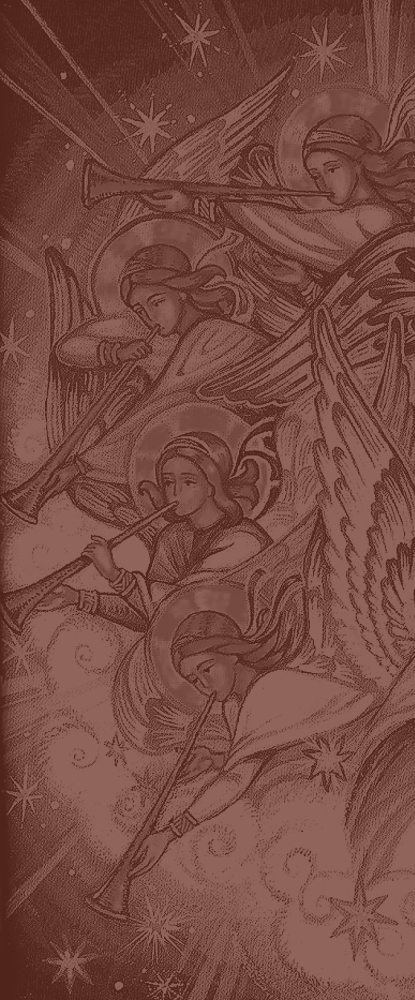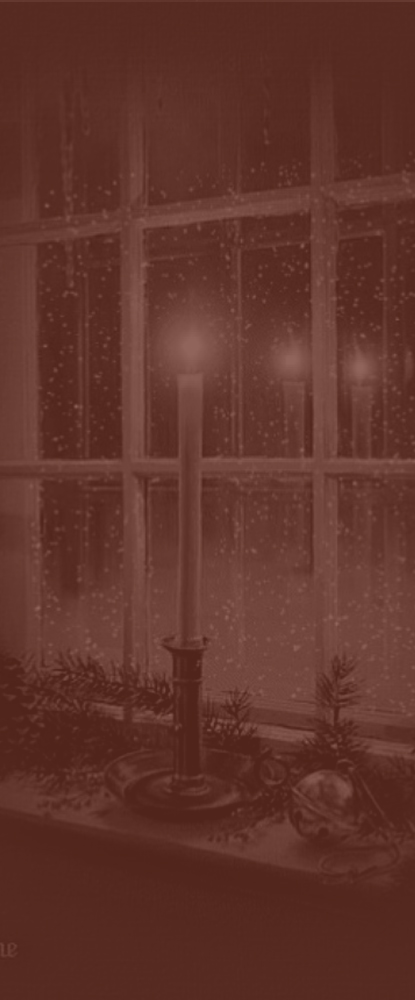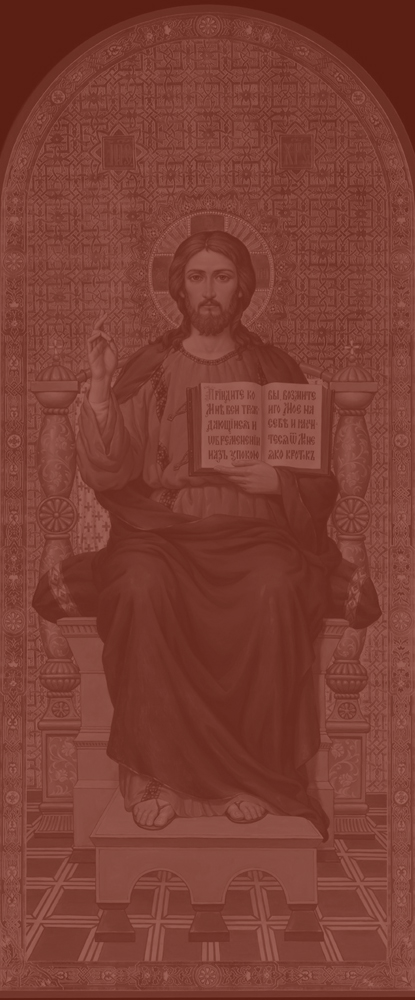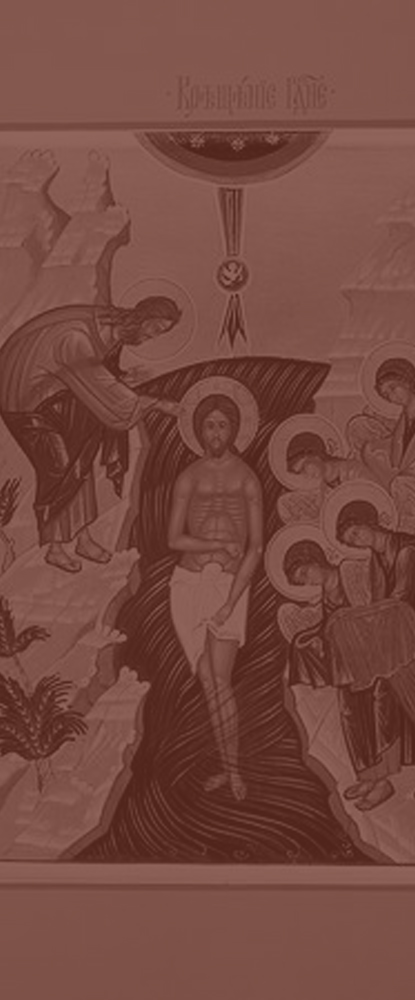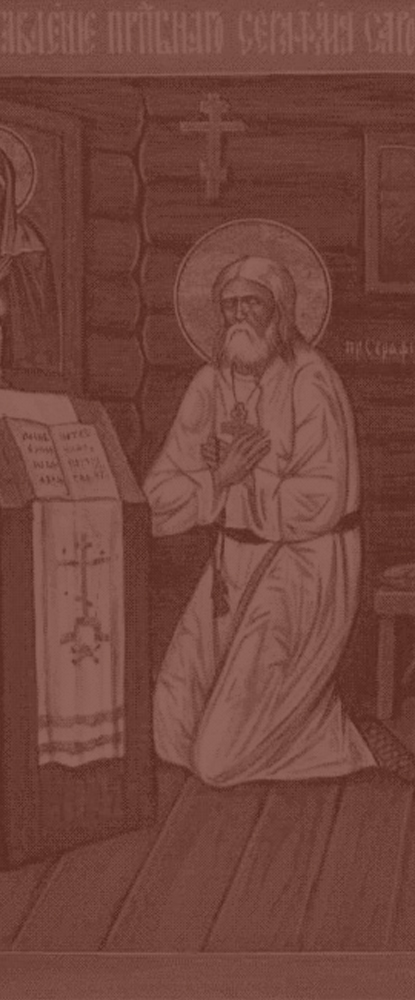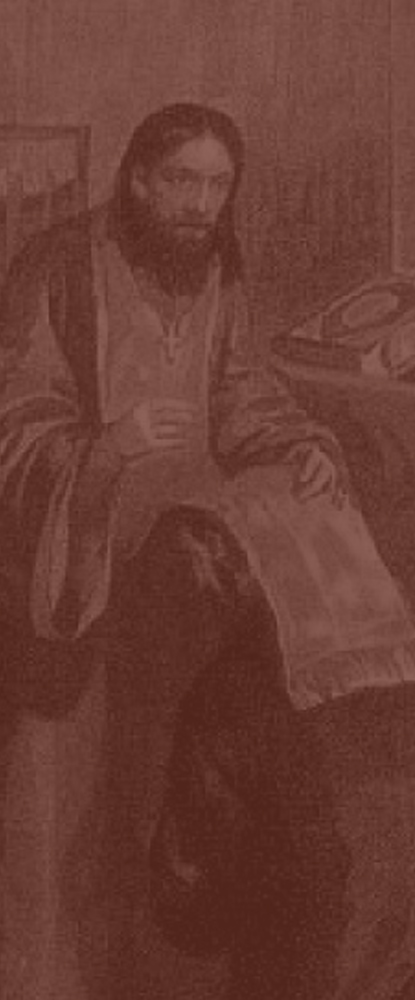ABOUT THE TERRIFYING TRUTH
On the Sunday of the Publican and Pharisee 05.02.2023
Saint John of Kronstadt Cathedral, Gai City
In the name of the Father, and of the Son, and of the Holy Spirit!
Starting from today, the preparation for Great Lent begins. This Sunday is called the Sunday of the Publican and Pharisee. The Lenten Triodion is opening. The next week is a fast-free week, there will be no fast on Wednesday and Friday. Then there will be a usual week, and then there will be a Meatfare week, Forgiveness Sunday and Great Lent.
Great Lent is coming; we are getting closer to it. This Sunday is called the Sunday of the Publican and Pharisee because today we read a Sunday Gospel about the events which happened to the Publican and Pharisee. Today we listen to this Gospel. Have you listened? Do you remember, there were two men praying at a church? One was a Publican. Publicans were the sort of people whom they despised in Jerusalem. They collected taxes and worked for the conquerors of Israel, the Romans. They seemed to belong to their nation, but at the same time seemed to be aliens among them. They were collecting assessments from their own people for the profit of Rome. This is why they were regarded as betrayers of the people.
In addition, it often happens that when people deal with money, they face a great temptation. This is reflected in their character and behavior as well. Surely, while they were collecting taxes, they left something for themselves, treated someone unjustly and ignored their conscience. This is why publicans were regarded poorly.
Two men, a Pharisee and a Publican are praying at a church. Pharisees, unlike Publicans, were respected by the people because they externally observed the law. They fasted and prayed ostentatiously; and everything they did was externally beautiful and splendid. These were such a kind of people, zealous towards the law.
Curiously enough, the Lord answers to these two prayers in a way people do not sometimes expect. The Lord disregards the prayer of the “righteous man” and looks favorably on this worthless man, a Publican, and prefers him. This happens because there was great arrogance, pride and selfishness in the Pharisee. Listen to his mere words, “God, I thank You that I am not like other men -extortioners, unjust, adulterers, or even as this tax collector.”1 Look, what haughtiness and arrogance he has! While the Publican, who realized his nothingness, remained kneeled and said, “God, be merciful to me a sinner!”2 There was truth in his prayer; and where there is truth, there is God. Yes, this truth was disgraceful, very specifically disgraceful. This was the truth about his nothingness and worthlessness. However, this was true. For the sake of this only truth, he becomes acceptable and pleasant before God. There was a great falsehood in the prayer of the Pharisee, as, according to the Holy Scripture, “There is none who does good. No, not one.”3
Every one of us is gravely damaged by sin, by this sore; every cell of us is damaged. If people do not realize their damage, and moreover, being damaged they allow themselves to be proud of themselves and feel some superiority over others, this is a great falsehood. Where there is falsehood, there is no God. This is why the Lord turns away from them.
Often, when we pay attention to some events or lives of the saints from the Gospel, we want to imitate them at once. When we see the point of the Publican’s repentance, we involuntarily begin to imitate him. Sometimes this happens in a funny, distorted and awkward way. One cannot imitate the Publican only because he or she has the goal to imitate him. In order to come into the state of the Publican, we should see all the depth of our worthlessness. In this case, you will naturally cry out from the bottom of your heart, “God, be merciful to me, a sinner!” You cannot perform this artificially, or this will be awkward and very disgraceful. You will resemble the Pharisee, just taking another role.
When we go to Church, live spiritual life, pray, work, humble ourselves, and the Grace of the Holy Spirit gradually comes upon us. It does not come because of our results, but because of our sincerity before God. The Grace of the Holy Spirit opens our eyes and we begin to see soberly, the way everything is. The Pharisee saw too, but he saw everything in a distorted way. He saw the distorted truth about himself. This distorted truth assured him he was something, while God’s truth shows everything as it really is. It shows people how worthless they are.
Sometimes people wonder why such a phenomenon exists. The closer people to God, the more they cry. It may seem, you are closer to God and farther from sin. You should rejoice instead of crying, because you come farther from sin and closer to God. Why do they cry? Because the closer they are to God, the purer their vision is. A person begins to see keenly, purely, the way things are. They begin to see themselves in contrast to God. This knowledge about themselves upsets them, and they cannot help crying.
One might think, “I am an average person. I live like the others. Others have some sins and I have some.” This does not bother people much. They live, do not even cry, and do not ever bother about this. While a saintly person begins to see very keenly the truth about himself. He looks into the very depth of his heart and sees betrayal, fornication, anger and murder, predisposition for all this. There simply were no circumstances and an opportunity for committing this. Believe me, every one of us has the potential for becoming a murderer, an adulterer, a betrayer, or anyothing else. We can make a long list of all things, the predispositions which lay in our heart. We only had no chance to act on them, or God protects us from doing this by life circumstances. Our neighbors and the education we got from our parents also protect us. However, we all have this very deep inside.
Woe unto you, who do not know yourselves. Such people are insecure. They are not safe, as due to their inexperience, they might relax and all this may reveal itself at the most unfavorable moment, when they do not expect. While saintly people are always mobilized, concentrated, and see their worthlessness very subtly and keenly. This is why they are concentrated. They say to themselves, “I know myself. May the Lord grant I will not relax and nothing springs out of me.”
You cannot imitate the Publican artificially. Nothing will work. Live a spiritual life. Through your spiritual life, acquire the Grace of the Holy Spirit, which will become your mind, vision and heart. You will come to see everything as it is and not the way you feigned. And then… Some people say, “I read from the saints that before praying one should think about his or her sins first, become a little upset, cry, and only then begin to pray.” No one needs this theater. You know, when you meet God, tears will run in torrents down your cheeks. These tears will be natural.
Sometimes non Church going people say, “What has happened to me? I entered the church and began to cry. I did not think about anything, or meet anyone, no one told me anything, I just began to cry.” This is how your soul met God and felt its worthlessness. It needed no stimulation, or recollections, or pressure on it. A person only came in… Or, you know, what happens when you meet a saintly person. You meet a saintly person, remain close to him, and you feel embarrassed. You feel embarrassed and ashamed.
I have traveled a lot seeking saintly people. I visited Athos more than forty times, went to England to the Monastery of Saint Sophrony Sakharov, and to America, when Elder Ephraim of Arizona was still alive. People always ask me to tell them what I was talking about with them. I say, “You see, I cannot explain this to you. You should experience this.” When you stand before a saintly person, all your questions seem to be silliness. When you go there, you have lots of thoughts in your head. I will ask this, I will talk about this. But when you meet him and look him in the eye, all your questions vanish. You only want to drop your eyes and say, “Pray for me.” It becomes embarrassing to ask any questions. All questions come from your silliness. He would ask simply, “Child, what do you want?” “Nothing. I just wanted to stand by your side. May I?” “Yes, you may.” He would pat your head and take you by the hand. He understands very well that you do not need to say anything at the moment. “Child, are you feeling good?” “Good.” “Why do you cry then?” “Because I feel both good and ashamed. This is why I cry.”
The state of the Publican cannot be played like in a theater. The state of the Publican comes naturally through encounter with the Holy Spirit, Who enlightens our mind. Human, fathom yourself and you will fathom God. You will learn you are worthless, come into a sincere state, and the Lord will be able to approach you in this sincerity. God does not come to a place where there is dirt, hypocrisy and falsehood. He does not go there. Become the truth. Become the bitter truth. This is unpleasant, disgraceful and uncomfortable. Become this truth and the Lord will come up to it. He will even embrace you in your worthlessness. You will be a worthless person, but you will not be a hypocrite.
There are three weeks before Great Lent. Mobilize yourselves and think about the coming of Great Lent. I wish there could be more and more people here during Great Lent, as after it there always comes Pascha. One cannot experience spiritual Pascha without fasting sincerely. You cannot experience Pascha without crying and suffering. Spiritual Pascha differs a lot from an emotional Pascha. This is not the 1st of May, 7th of November, or a New Year. These are drastically different feelings.
Father Gregory will start the panikhida now. Today we commemorate the New Martyrs and Confessors of Russia, our saints, who during soviet times proved their faithfulness to Christ. They were not only unafraid of persecution, abuse and oppression, but also they were not afraid of death and they went for death, so as to not deny Christ. The XX century gave our Church as many saints, as no century, or all centuries together did. We will commemorate them now.
Glory to our God, always, now and ever, and unto the ages of ages!
1 Lk. 18:11
2 Lk. 18:13
3 Ps. 52:4
